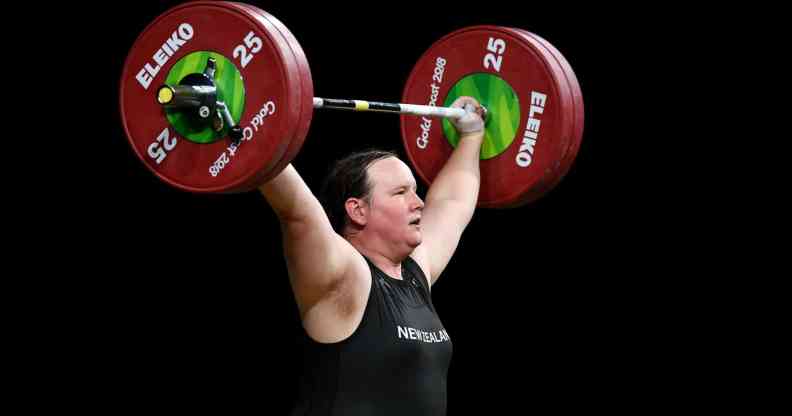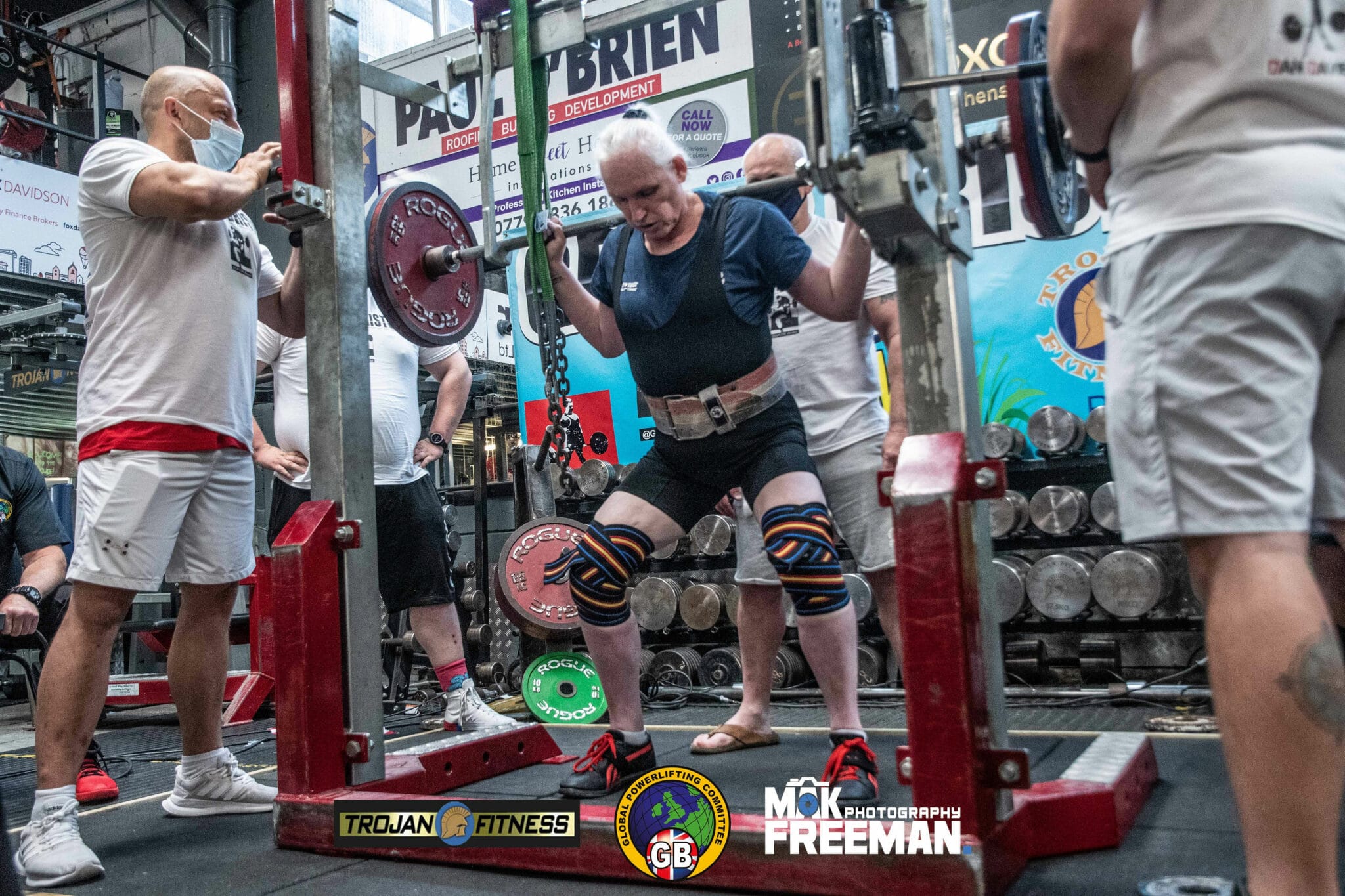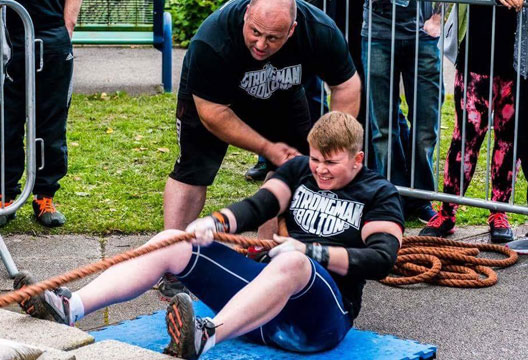Trans weightlifters celebrate Laurel Hubbard’s ‘vindicating, monumental’ Olympics debut

Laurel Hubbard competing in 2018. (Dan Mullan/Getty Images)
Laurel Hubbard is one of the first openly trans athletes to compete at the Olympic Games.
Laurel’s story is part of history: Olympics history, weightlifting history, LGBT+ history. Her road to the Olympics has been plagued by transmisogyny, and she’s understandably kept quiet and focused on the competition in the face of relentless hostility from the press.
Alongside other openly trans and non-binary athletes at this year’s Olympics, like skateboarder Alana Smith and Canadian footballer Quinn (who was the first out trans Olympian to compete in Tokyo), Laurel Hubbard is part of a seismic shift in increased representation for trans athletes.
That’s because this year is the first time that we’ve been able to watch openly trans and non-binary athletes compete at the Olympics – despite trans participation being permitted since 2004, it took 17 years for the first openly trans athletes to qualify.
And with the media spotlight fixed on Laurel Hubbard, there’s also been unprecedented attention brought to her sport: weightlifting. But what does it mean to trans and non-binary weightlifters to see her compete at the Olympics? PinkNews spoke to three trans lifters to find out.
Charlotte Wareing, 58, she/her: ‘I have lost track of how many records and titles I hold’
“I have been lifting for seven years. I have competed in amateur competitions all over the world. I have lost track of how many World, European and British records and titles I hold or have held. Powerlifting records are arranged in age and weight classes. My grandchildren can say ‘My gran lifts more than your dad’ – and trust me to be good at a sport with no money in it.
“When people talk about weightlifting they usually mean Olympic lifting which consists of two lifts, the clean and jerk, and the snatch. These two lifts involve the lifter getting the weight off the floor and end up with them standing upright with the weight held at arms length over their head. Olympic lifting is a skilful technique and takes years of practice to perform competitively.
“I am a powerlifter. Powerlifting consists of three lifts: squat, bench press and deadlift. You can walk into any gym’s weights area and see people doing these lifts. That is one of the reasons I love powerlifting – most gym goers are doing it at some level. The second reason I love powerlifting is that it is possible to watch your own progress and be amazed by it. I keep a training log recording the weights I have lifted; when I look back through I can see my progress and am amazed at how much I can lift now compared to a few years ago.
“I began powerlifting by accident, problems with my hip and knee joints meant I could not run and compete in triathlons or take part in high-impact fitness activities anymore. It seems odd, but because you do not move around much when training with weights it is surprisingly gentle on the joints. I had been lifting for about six months when someone said to me you lift a lot of weight you should give powerlifting a go. I did and loved it everyone is so supportive at competitions; the real competition is not against others but about achieving a personal best lift.

Charlotte at her last competition three weeks ago, when she won (another) British record. (Charlotte Wareing)
“It means a lot to me to see to see Laurel Hubbard competing in the Olympics, other non-out transgender athletes may have competed but they have been as rare as openly gay premier league footballers. Most UK powerlifting federations have been very welcoming to me but there is a lot hostility out there.
“So to see an openly trans woman competing and following all the rules set by the Olympics for trans athletes feels like a vindication of the statement trans women are women and should be treated as such.”
Jake Hall, 28, they/them: ‘Seeing Laurel Hubbard compete will be pretty monumental’
“I ultimately lift for fun, although I would love to enter competitions as I improve! I first tried lifting at the gym around a year ago, but I started taking it more seriously last month by going to regular weightlifting classes.
“I’ve found weightlifting to be great for my mental health, both because it gets me out of my head for a while and because I can focus on weight goals and actually see my strength and stamina improving. I also treat weightlifting and exercise more generally as an exercise in self-defence; especially when I’ve presented more femme in the past, I’ve experienced plenty of street harassment. For me, actively working to build my strength makes me feel more confident that I could defend myself should I ever need to.

Jake Hall, a freelance writer, started weightlifting more seriously last month after finding a queer personal trainer. (Jake Hall)
“For years I avoided weightlifting because it felt way too cis male-dominated – in my mind, I kind of wrote it off as something that wasn’t ‘for me’. To see a trans athlete compete at the Olympics is pretty monumental in my mind, because it shows a whole bunch of trans people around the world that it’s possible not just to practice weightlifting, but to excel at it.
“On a personal note, finding a queer personal trainer was what spurred me on to take lifting seriously, so beyond representation, I really hope this visibility inspires queer weightlifting fans to start their own small, inclusive groups to support each other and find spaces within the fitness world to do what they love without judgement.”
Han Newman, 29, they/them: ‘It’s a huge thing to see Laurel Hubbard competing at the Olympics’
“I did my first strongman-style competition about seven years ago in 2014. Since then, I’ve competed in strongman-style and powerlifting events, mainly for fun. I now organise an all-gender inclusive competition once per year called Limitless that categorises competitors by ability rather than gender. I also compete in the LGBT International Powerlifting Championships annually in their ‘Mx’ category.”

Han Newman runs an all-gender strength competition called Limitless. (Han Newman)
“I originally stumbled into strongman/strongwoman after starting to lift weights at a pretty standard commercial gym. I started following a lot of different strength-related pages on social media and stumbled across a strongman-style competition, so decided to enter it. I realised pretty soon after starting that I just loved the feeling of being strong, but I’ve also learnt since that the inclusiveness and sense of community in strongman/strongwoman is fantastic. The way everyone at a competition gets behind every competitor, whether they know them or not, is something I’ve never seen before in sport.
“It’s a huge thing for me to see an openly trans athlete like Laurel Hubbard competing at the Olympics. When I first started living openly as a non-binary person I worried that it may mean I had to end my involvement in my sport. Competitive opportunities are more limited for me because of this at the moment (hence why I created my own all-gender-inclusive competition).
“But I’m hopeful that representation at Olympic level like this, alongside all the great work that LGBT IPC and others are doing at the moment to make the lifting world more inclusive for trans lifters, will mean that opportunities continue to grow and grow in the future.”

